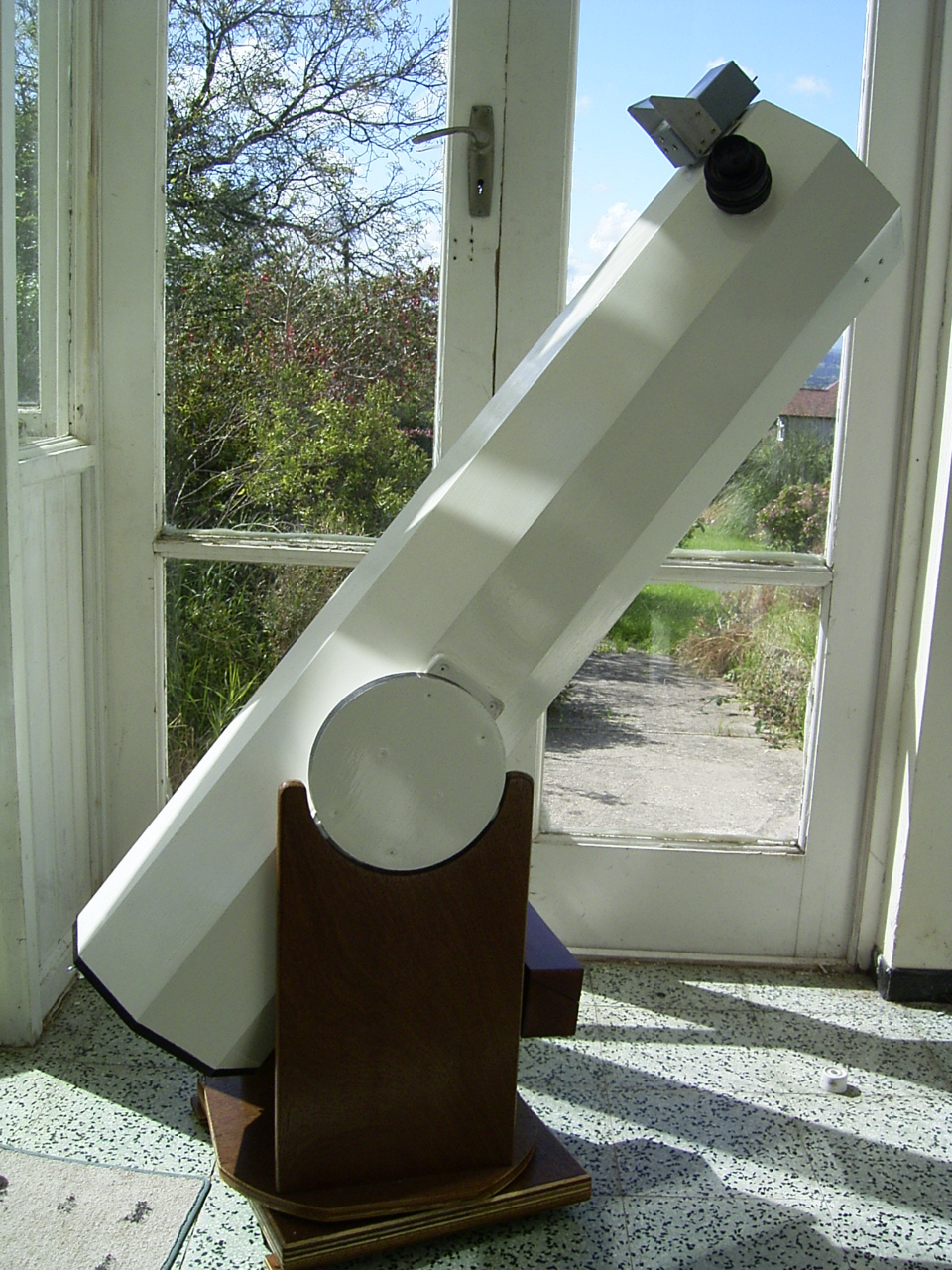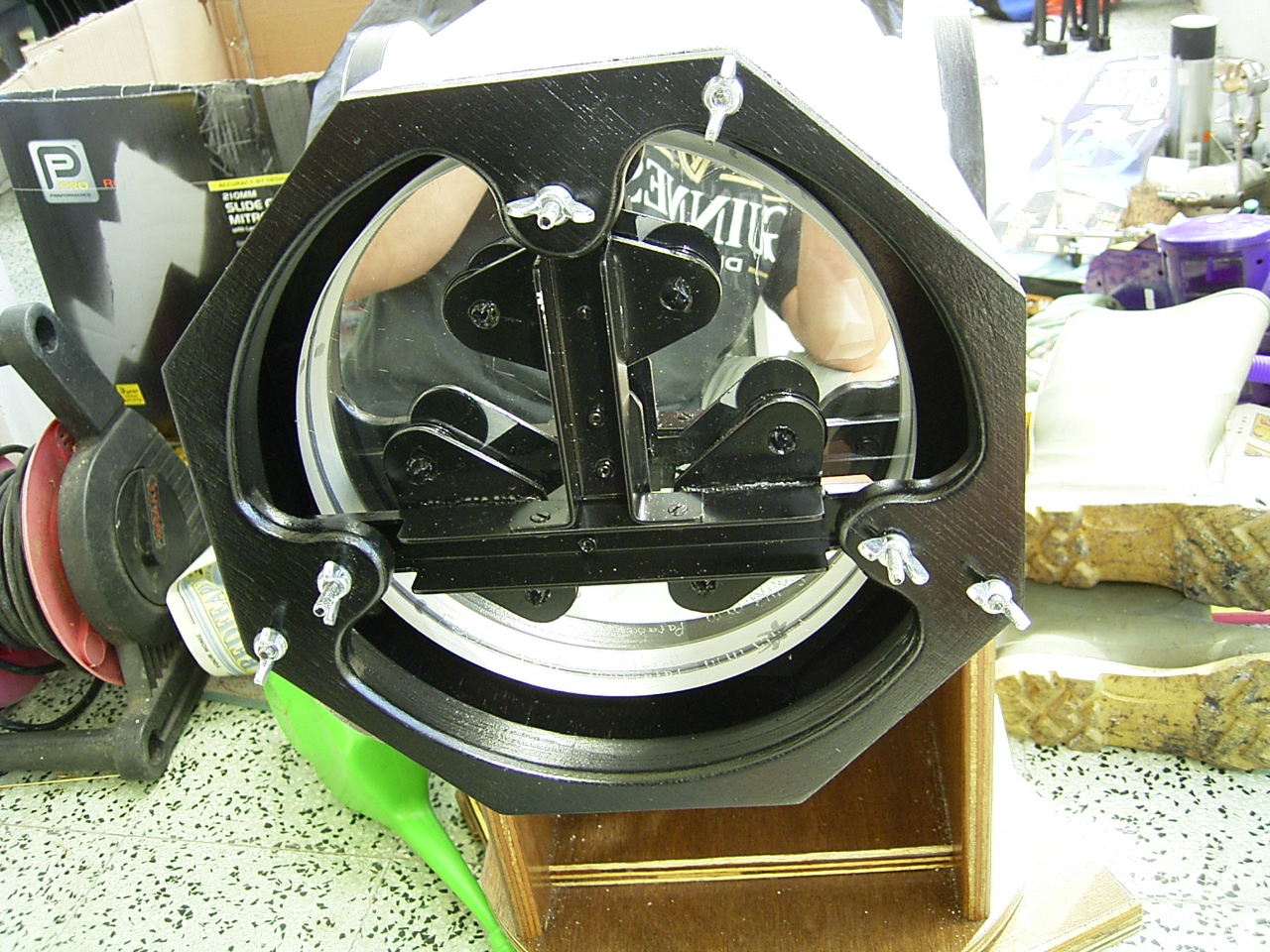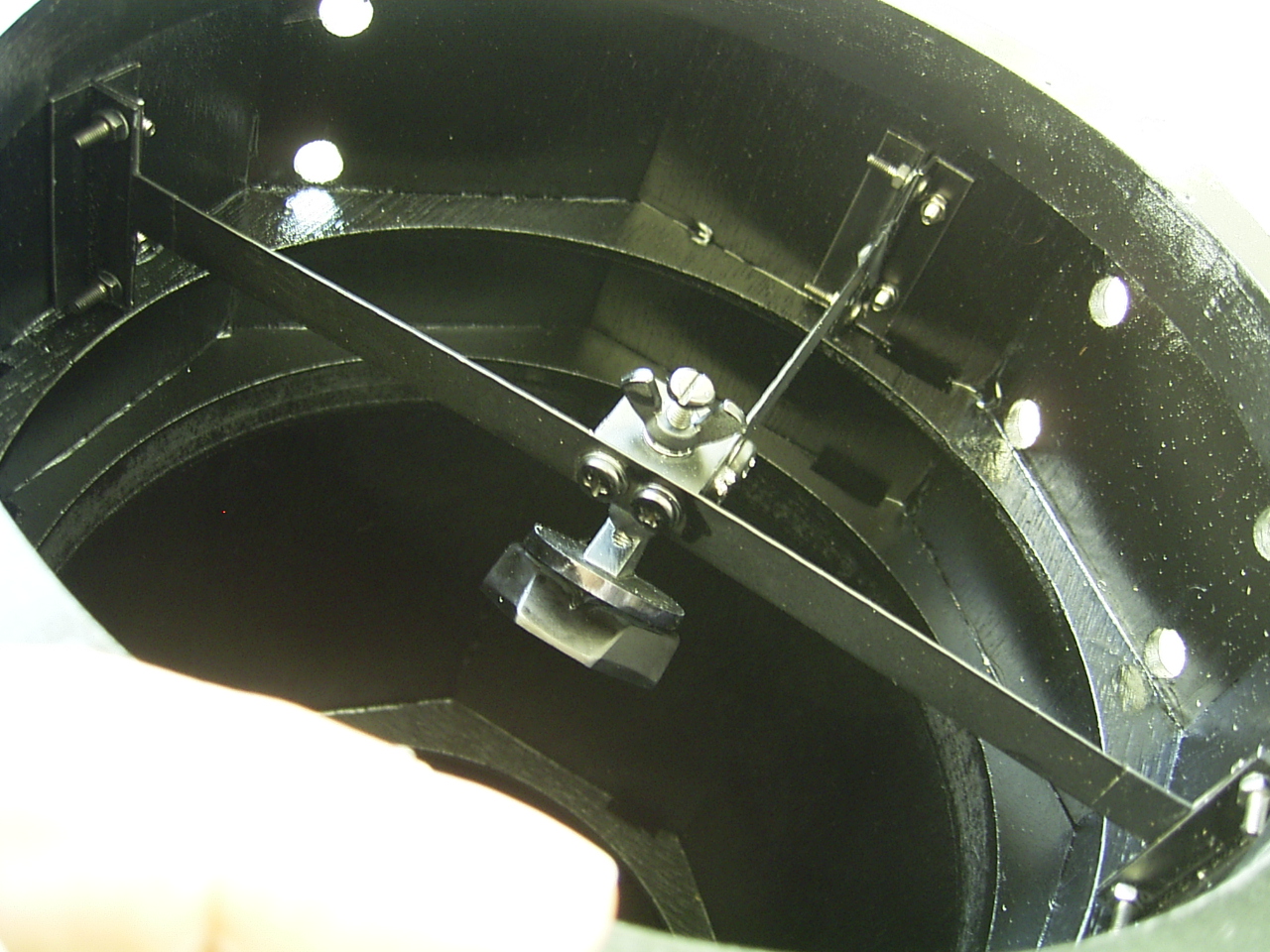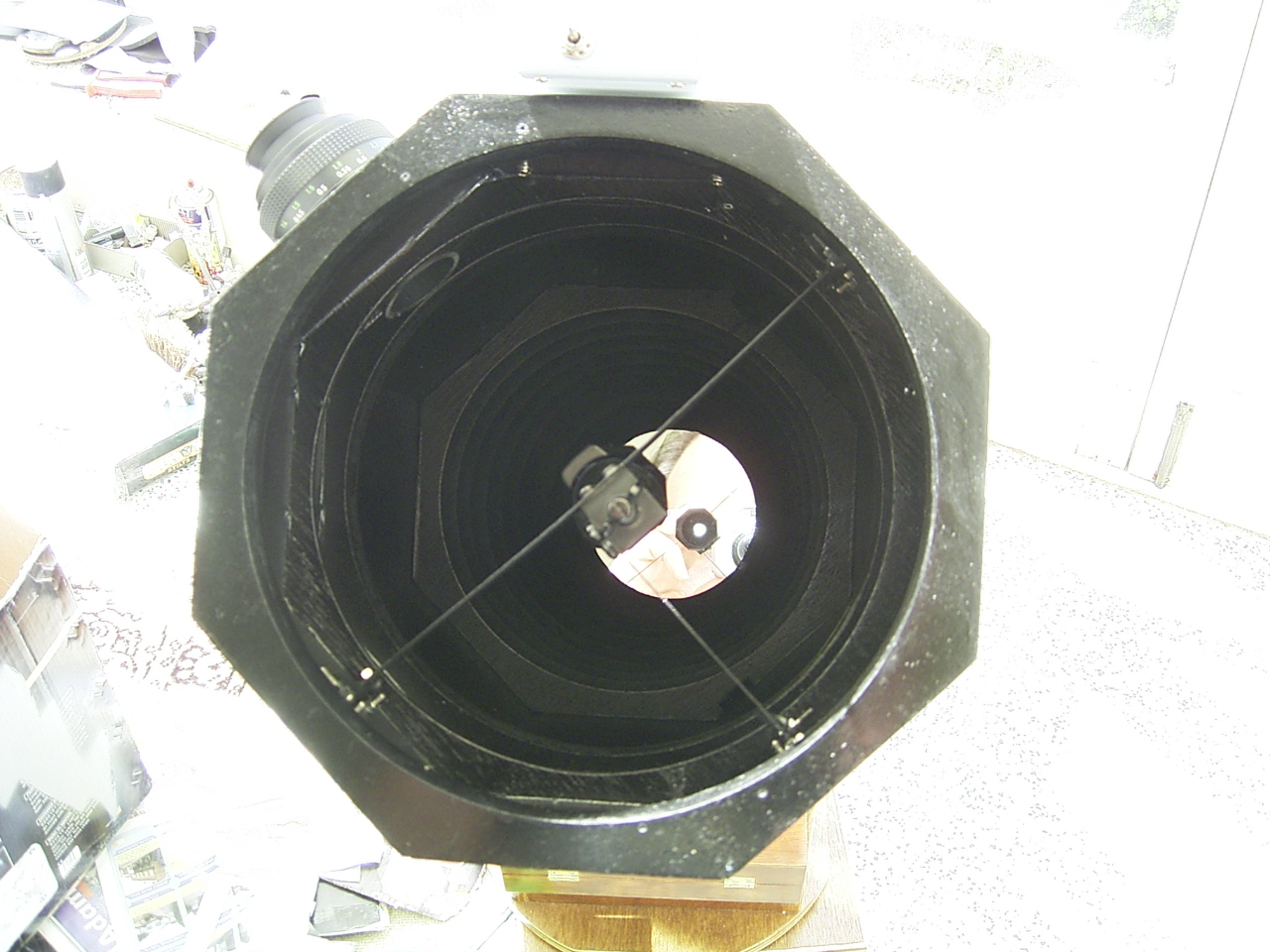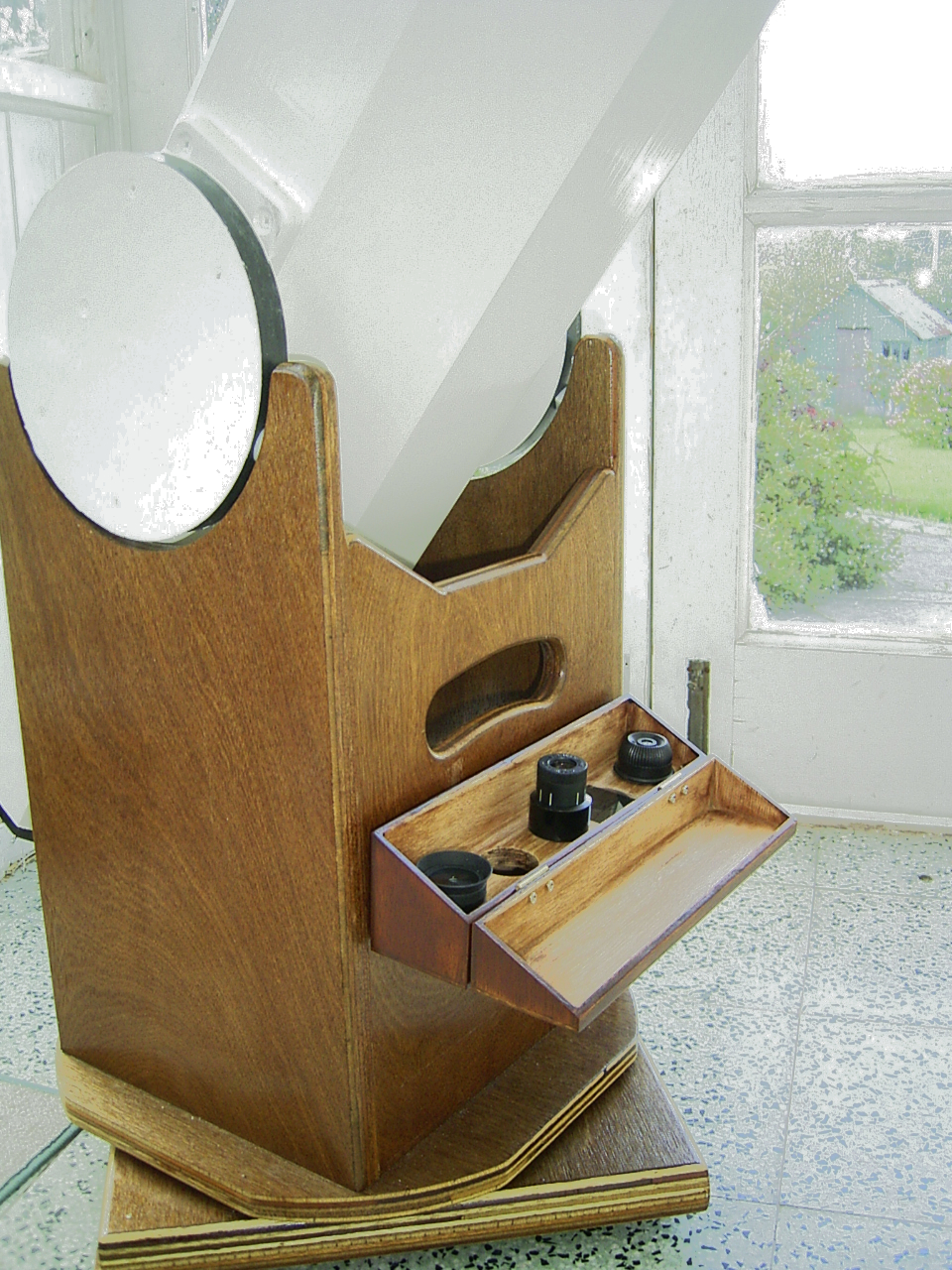- This topic has 37 replies, 16 voices, and was last updated 6 years ago by daviek.
-
Telescopes, stargazing etc
-
sadexpunkFull MemberPosted 6 years ago
the lads just told me hes getting interested in stars, planets etc and wouldnt mind exploring this further. asked if i could recommend a telescope. er….. no, but i know some people who may be able to.
a quick search found an old thread from 7 years ago stating DO NOT BUY A £100 TELESCOPE!
well, his budgets not much more than that, about £150ish i think. is it worth him bothering at that price or might he be as well looking at the moon through a magnifying glass!
also, he knows nowt about it yet, wheres his knowledge going to come from? any decent websites, forums etc for like-minded people?
thanks for any advice
fasthaggisFull MemberPosted 6 years agoIf it’s clear and he looks out tonight, he may just catch the end of the Geminid shower.
Saw a lot last night 🙂Just get googling for any local groups near you and there are loads of good blogs on how to get started.
Bit spoiled up here, I have a free observatory that I can walk to. 🙂whitestoneFree MemberPosted 6 years agoWell the usual “you get what you pay for” advice applies. The best “(big) bang for buck (Rogers) “(sorry :oops:) telescopes are the Dobsonian style – basically a tube in a simple mount that you move yourself. Once you look at the telescopes with motors then you either have to spend more to keep the same optical quality or let the quality suffer. A decent pair of binoculars are usable as well.
bodgyFree MemberPosted 6 years agoThe Stargazers Lounge is basically the Astronomy equivalent of STW.
Loads of good advice, friendly bunch, quite often scopes and lenses for sale in the classifieds.
A ‘Dobsonian’ scope is a good choice for a beginner, as they give the most aperture for your money, and because they are manually aligned, rather than having complicated mechanical mounts. A great way of learning your way around the night sky. At 4″ aperture you can even start to pick out deep space objects, like galaxies and other phenomena.
EDIT: what whitestone says. A good pair of large diameter, low magnification binoculars have the advantage of not inverting the image, so can be used for other stuff as well.
BigButSlimmerBlokeFree MemberPosted 6 years agoBit spoiled up here, I have a free observatory that I can walk to
Links broken, but that looks like Mills Observatory which is awesome. Especially since I got to turn the handle that made the dome move last year. I’ve seen Saturn’s rings and Jupiter’s spot from there
Working linkedhornbyFull MemberPosted 6 years agothe sky at night covered this very topic last week (iplayer) – their advice was, first purchase at the 100 quid mark should be a good pair of binoculars – telescopes are next when they know where to aim and what to look for
sadexpunkFull MemberPosted 6 years agothanks a lot chaps, knew you wouldnt disappoint.
hes just joined that stargazers forum and currently digesting all the information on what to buy.
thanks again.
daviekFull MemberPosted 6 years agoYoull get a 130mm dobsonian for about £130/140. Most of the stuff I’ve bought has been from first light optics which sponsors stargazers lounge as their service is very good. If you knew a bit about the hobby second hand has some great deals as just like bikes folk are always upgrading and changing stuff about.
IdleJonFull MemberPosted 6 years agoA good pair of large diameter, low magnification binoculars have the advantage of not inverting the image, so can be used for other stuff as well.
And don’t magnify enough to show anything interesting, and shake terribly unless you invest in a mount, which is money that could be put towards a decent scope.
I’ve tried using binocs loads of times, and they are always disappointing. It’s difficult to even get a good view of obvious objects, like the planets. (It helps when you’ve got a 200mm dob to play with, though. 🙂 )
As Daviek says, you can get a good 130mm dob for not much over £100.
tillydogFree MemberPosted 6 years agolidl?
https://www.lidl.co.uk/en/Non-Food-Offers.htm?articleId=8881
Not Lidl.
The problem with binoculars is that they’re not a *telescope* 😉
Something like this would be good:
Edit: Or bigger, as suggested.
drewdFull MemberPosted 6 years agoI’ve no experience of this but I attended an event at the local observatory last week, run by the local university. I found it interesting and am currently researching which sub £100 binoculars to get.
The lecturer presenting mentioned that binoculars are the best place to start for a beginner, and that 10 x 50 are a good size for starting out. They magnify enough to allow viewing deep sky objects but are not too unwieldy to hand hold. Larger magnification can require a tripod.
The impression I got was that the larger field of view you get from using binoculars can make it easier to learn where the constellations are, and if you get a telescope at a later date the binoculars come in handy for identifying roughly where you need to point the telescope. So they sounded good for beginners and suitable to complement a telescope at a later stage. As I said though I’ve no 1st hand experience, and others above seem to disagree with that.
The local astronomy club in attendance agreed with him, and I get the impression some clubs let you attend and try out their gear and ask questions. If there’s a local club perhaps he could go along and ask them for advice.
IdleJonFull MemberPosted 6 years agoThey magnify enough to allow viewing deep sky objects
They really don’t. I’m not sure why lecturers persist in saying this. Maybe if you get a really good set on a decent mount in a dark location and know what you’re looking at? DSOs are difficult enough to see with a big scope, never mind with a set of cheap 10x50s. And, as I’ve mentioned, if you add the cost of a decent binocular to a decent mount then it equals a decent scope. I learnt how to find my way around the sky as I learnt how to use the telescope.
To give an idea, I’ve spotted around 2/3rds of the Messier list from my light polluted back yard using a 200mm Skyliner (about £300 I think?) Whereas I can’t see any details on Jupiter with my 10x50s and certainly can’t see galaxies or globular clusters.
drewdFull MemberPosted 6 years agoThey really don’t. I’m not sure why lecturers persist in saying this. Maybe if you get a really good set on a decent mount in a dark location and know what you’re looking at?
The observatory the uni have is out of town. It’s not in a dark sky area, but close to one and there isn’t much light pollution.
The lecturer said he uses them to teach students to navigate the sky, and recommended them as a starting point. I presume as he would know what he was looking for and where to look he could point the students in the right direction. I think this is why joining a local club can help.
fasthaggisFull MemberPosted 6 years agoThe key thing with Binoculars is that they are a starting point,with the bonus that you have something that you can use for lots of other things.
karnFree MemberPosted 6 years agoIMHO for beginners, a good pairs of bins is the way to go.
explore the sky as much as you can with them and if you still want more, then go for a telescope.
The problem is that if you get the bug you always want more and before you know it you’ll be splashing out £3k on a telescope just so you can get a slightly better view of Neptune or a slightly sharper view of Andromeda…. then you’ll upgrade the eyepieces, then the tripod, then convert the shed into an observatory etc etc.I’d recommend these as a good starting point…
https://www.amazon.co.uk/Celestron-71009-Skymaster-Porro-Binoculars/dp/B003AM87Q4/ref=sr_1_3?ie=UTF8&qid=1513333769&sr=8-3&keywords=celestron%2Bbinoculars&th=1you’ll easily be able to see Jupiter and it’s moons, loads of features on the moon, the pleiades and even the Orion Nebula. In fact I find that looking at some sights through the bins is more satisfying than the scope.
A scope comes into it’s own if you want to try Astro photography, but then you start needing motorized mounts and stuff which end up adding to the cost or detracting from the optics, plus bins are an essential part of any astronomers tool box so wont become obsolete if you then decide to buy a scope in the future.
sadexpunkFull MemberPosted 6 years agothanks for your advice and links, much appreciated. reading your comments on bins vs ‘scopes, it brought to mind that he hasnt got the steadiest hands, in fact his hands shake like a sh1tting dog when hes pouring his cup of coffee 😀
i know that even putting my (phone) camera on zoom can make the magnified screen shake a fair bit, would it be a mistake for ‘mr skakyhands’ to use binoculars? would he be better off with something on a stand?
thanks
esselgruntfuttockFree MemberPosted 6 years agowould it be a mistake for ‘mr skakyhands’ to use binoculars?
Those big bins ^^ will have a screw attachment for a tripod I should think. I had some 20 x 70’s & they were awesome. Really good for terrestrial stuff too.
FB-ATBFull MemberPosted 6 years agoHi
I asked this last year and was given the same advice re binocularsGot Mum to dig out Dad’s sets and managed to rig a pair up on a camera tripod as my son can’t hold binoculars (he has cerebral palsy). Could get a good view of the moon. After a while his interest waned (no pun intended) so I was glad we didn’t go for anything pricey.
sadexpunkFull MemberPosted 6 years agook, so he’d be able to screw binoculars to a tripod then yep? er….. next question….. what tripod for a set of bins? 😀
BeagleboyFull MemberPosted 6 years agoThe Heritage 100 desktop Dobsonian is a good shout if you want to go for an entry level scope. I think it won a ‘Sky at Night’ best buy award. The bigger Dobsonians (that’s the style of the base, the Scope is actually a Newtonian Reflector), give you a huge amount of telescope for your money.
This is Dobby, my Skywatcher 200 Newtonian Reflector on a Dobson mount.
The beer bottle is there for…erm …scale.
Brand new, it was £260 from Jessops and is an amazing piece of kit. It’s big though. It has a 200mm mirror at the bottom of the tube which itself is 1200mm long. It’s also heavy, although the base and tube do come apart.
I quickly learned to star hop using the small viewfinder scope on the top to find an easily recognisable star in the sky, then work over to the area I was interested in by kind of ‘joining the dots’.
The views of the planets can be stunning. The icecaps of Mars, or watching the shadow of Europa crossing the clouds of Jupiter are highlights that spring to mind. With that, remember you won’t be seeing the stuff you see on telly or magazines. Galaxies are fuzzy grey blobs, because our eyes can’t pick up the faint colour from them, even through a telescope. You need highly sensitive cameras, on long exposures to see that sort of detail!
Still, with a cheap camera phone holder mounted in front of the eyepiece, you can still get some nice shots. Here’s a couple to give you an idea of what you might be able to see.
This is through a 20mm eyepiece, so the magnification on my scope is around x48
Pop in a 10mm eyepiece, bumping the magnification on my scope up to around x120 and you get this…
I’m looking forward to clear skies tonight, a bottle of wine, and hopefully a nice display from the Geminid meteors. Probably going to be chuffing cold though!
IdleJonFull MemberPosted 6 years agoExactly what I had Beagleboy. Great bit of kit. The lecturer in charge of the local astronomy club looked at mine and told a newbie not to bother with one as it didn’t have a motor. 🙄 The only problem is the weight (70kg iirc) although it can be broken down. I only sold it because of lack of storage space.
BigButSlimmerBlokeFree MemberPosted 6 years agoSlightly OT, but this might be an investment. A list of things to see and what to see them with (eyes, bins, scopes) and how to find them, so it gives both a background to what you’re looking at and a basic introduction to finding your way round
bodgyFree MemberPosted 6 years agoPrecisely what I’ve got, Beagleboy. I changed the finderscope to a right angle one (my back was finding the straight-through a little challenging), and bought a Baader zoom eyepiece (Great bit of kit). Probs about £400 in total, and more than capable for all my star gazing needs.
Best-buy bit of astro kit was a water butt stand, which elevated the whole rig by about 14 inches (again, to save my back).
daviekFull MemberPosted 6 years agotoo slow :/ bodgy beat me to it, Turn left at orion is recommended by lots of people
FB-ATBFull MemberPosted 6 years agoOP- it was jury rigged with clamps and zip ties. If he had showed more interest I would have looked at a more permanent solution.
tillydogFree MemberPosted 6 years agoHere’s mine wot I made (7″ Newtonian with red dot finder)
[url=https://flic.kr/p/3BLF1Q]My scope[/url] by tillydog, on Flickr
Binoculars might be the sensible option, but they’re not the *FUN* option.
A ~4″ plus simple reflector is a proper telescope – Telescopes are cooler than binoculars, whatever anyone says.
With a ‘Red dot’ finder you’ve got a full view of the sky and you just put the red dot where you want to see and look through the scope. It’s easy to line up with the right part of the sky which you find by identifying the constellations and bright stars and using them as astronomical landmarks. With bins, you just wave them in what you think is the right direction and hope. (The sky is BIG – much bigger than it seems, and you don’t need to be far off to miss what you’re looking for completely.)
One person can line a scope up for someone else – you can set it up for your lad or if your lad sees something and goes “wow” then you can have a look at the same thing (if you’re quick). You can’t do that with binoculars – I’ve never found them much fun – scope, yes; naked eye, yes, but bins…
(I know I’m going against every “what should I get for a beginner…” advice :0/)
dannybgoodeFull MemberPosted 6 years agoStargazerslounge.com is your friend. The stw of astronomy and generally thoroughly decent folk. The beginners section there is excellent.
Download a copy of Stellarium and buy a copy of Turn Left at Orion.
A decent pair of binoculars can be far less frustrating than the equivalently priced scope. You can get door really good bins for £100 ish that will be far more portable and far quicker to set up than any telescope. I’ve seen Jupiter’s main moons with a pair of 10×50’s. Honestly you’ll probably find bins get used more because of this.
Other than that- any of the Skywatcher scopes are £ for £ about the best you’ll get but you’ll need to spend a bit of time investigating collimation etc.
The standard eyepieces are pretty terrible but will get you going. Upgrades are a potential money pit.
Astrobuysell.com/UK is the place to go for second hand stuff.
dannybgoodeFull MemberPosted 6 years ago@tg- what dob is that? New job starting in the new year weigh is cutting the travel down from hours to 10’s of minutes so hope to get my kit out more late winter early spring.
tillydogFree MemberPosted 6 years ago@tg- what dob is that?
If you mean me – it’s a 7″ F/6. Completely home made including the borosilicate glass primary mirror and the secondary flat mirror.
Trepanning the glass for the primary mirror (some additions to my little pillar drill):
[video]https://www.youtube.com/watch?v=gJQBIQDvOjk[/video]
Mirror mount:
[url=https://flic.kr/p/HAeYdT]Rear of mirror[/url] by tillydog, on Flickr
[url=https://flic.kr/p/22wYQUa]Spider and secondary mirror[/url] by tillydog, on Flickr
(Spider is made from hacksaw blades with the teeth ground off)
[url=https://flic.kr/p/22wYEXX]Fully baffled[/url] by tillydog, on Flickr
[url=https://flic.kr/p/HAeKma]RIMG1259[/url] by tillydog, on Flickr
Haven’t used it in ages – this thread might spur me into digging it out again.
dannybgoodeFull MemberPosted 6 years agoThat’s properly gangster. Looks a decent scope. Yeah I’ve not had my lot out this year but hopefully next I’ll get some decent time with it.
sadexpunkFull MemberPosted 6 years agohes asked whether you think its worth doing a home study course from either of these two places, studyastronomy and planeteartheducation
my answer was if you want to find stuff out, the internets free, why do you need a qualification? hes unlikely to ever have a career in this field, so do you think its worth having a qualification to his name? pointless, or can you see any merit in it?
oh, and whats the best android app for pointing your phone up at the sky and itll tell you what youre looking at? skyguide?
thanks
dannybgoodeFull MemberPosted 6 years agoStellarium for android would be my pick.
There’s a huge amount of resources available without doing a course. Probably get much more out of joining a local astronomy club to be fair.
daviekFull MemberPosted 6 years agoAgree with Danny stelarium is very good but you could also try Skeye, sky map or sky view.
Stelarium on a PC/laptop is also good for planning a night as you can fast forward and see what’s up there that evening so you don’t waste time inbetween the dreaded clouds passing!
Having said that a night without a plan can be just as good
The topic ‘Telescopes, stargazing etc’ is closed to new replies.





